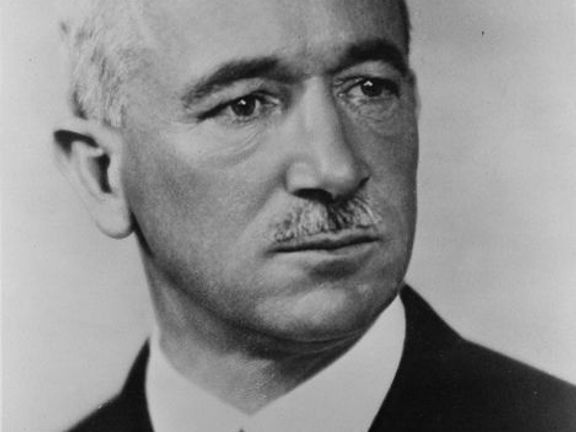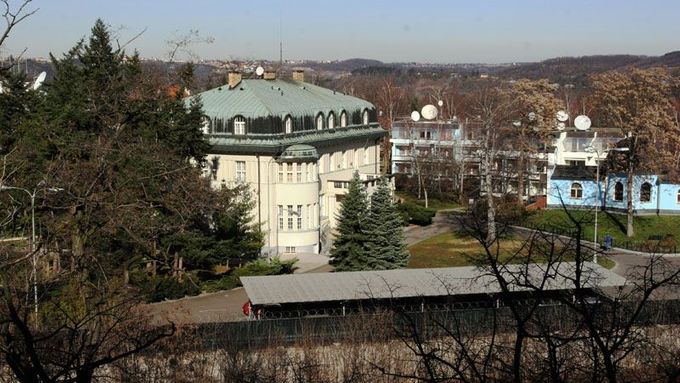
What are Beneš´s decrees
- Beneš's decrees were legal norms from the period between 1940 and 1945. President Beneš issued 143 decrees that regulated the temporary foundation of the republic and the state administration before regular legislative bodies were formed.
- Beneš held the right to issue decrees because there was no parliament during the Nazi occupation. This competence of his was terminated on October, 28, 1945 when the Temporary National Assembly launched its operations.
- Not all decrees applied only to Germans. Some decrees covered the nationalization of banks, insurance companies and industrial conglomerates, others dealt with the reestablishment of the currency. In 1946, the Temporary National Assembly decided Beneš's decrees had the same validity as laws.
Prague - Czech politicians refuse to keep a promise that was given to pre-war owners of a magnificent villa by Czechoslovak president at the time Edvard Beneš.
Lisbeth Popper, a daughter of pre-war banker and former owner of the mansion Jiří Popper, plans to file a lawsuit to get the house back to her family. The estimated value of the building is CZK 1 billion (EUR 43.3 million).
In 1939, the Popper mansion was confiscated by the Nazi authorities. Later it became the seat of the Prague Gestapo. In 1945, president Beneš gave the building to the Soviet Union as a token of gratitude for liberating Czechoslovakia from the Germans.
In his decree he stated: "Further claims of former owners of the property for compensation and claims of persons whose rights to the property are set in writing are reserved for later jurisdiction."
Today the mansion is the residence of the Russian embassy.
Do not miss: Moscow and Prague sued for post-WW2 nationalization
Promises not kept
After 1948 though, no Czechoslovak government ever kept this decree. And even current politicians are hesitant to consider Lisbeth Popper's claims and keep Beneš's word. The reason, that Popper's lawyer Irena Benešová heard many times, is: It is not legally possible.
Irena Benešová asked Czech Prime Minister Mirek Topolánek for compensation. His respond was dismissive.
"It is not possible to issue a legal regulation that would fulfill the requirement set by president Beneš's decree. Such a regulation would be considered illegal by the Czech Constitutional Court," PM Topolánek wrote in his response.
The reply by the Finance Ministry sounded similar.
"The Constitutional Court declared that the decree as a normative act already fulfilled its purpose and it has not issued any legal relations in the past five decades," finance minister Miroslav Kalousek (Civic Democrats) wrote to Lisbeth Popper.
As the responses by Czech politicians show, the government is not going to issue any kind of decree that would allow the Popper family to get their former property back.
The Foreign Ministry recognized that based on the findings of the Constitutional Court, Beneš's decrees are still valid and so are his decrees on compensations for confiscated property.
"At the same time, though, it is obvious that such compensation cannot be received in a legal way," Foreign Ministry wrote to Benešová.
A victim or a collaborator?
The response that annoyed both the lawyer and Lisbeth Popper the most came from the Senate.
Edvard Kožušník, the director of the office of the Senate president, made a reference to Constitutional Court findings that dealt with property confiscated from war collaborators. Jiří Popper, though, was far from being a collaborator.
"The Senate president equates Jiří Popper, who was without any doubt a victim of the holocaust, with people who betrayed the Czech and the Slovak nations. By that, he has committed a crime of slander and public legitimization of Nazi crimes," said Benešová.
Ironically, the Finance Ministry also drew Benešová's attention to Edvard Beneš's decrees that regulated the property of collaborators.
"In my opinion, it does not matter if the Constitutional Court was referring to paragraph 108/1945 [which regulates collaborators property] or to decree 8/1945 [which deals with gifts to the Soviet Union]," minister Kalousek wrote in his letter.
